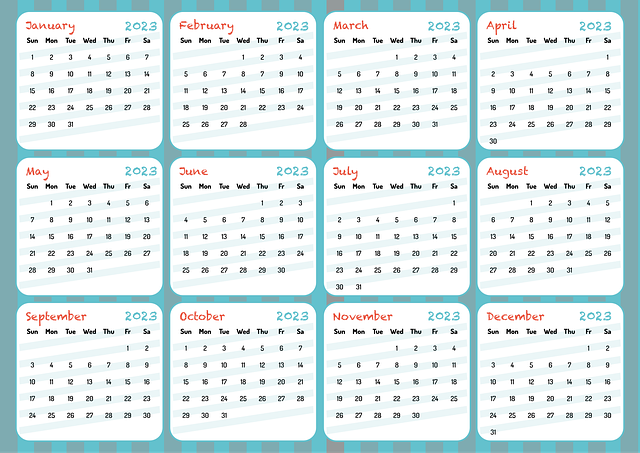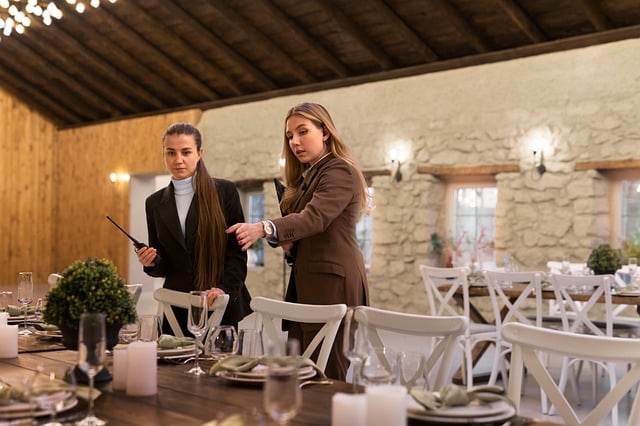Event Planning for Local Businesses: Identify community needs through surveys & meetings, tailor events based on arts, sports, or environmental interests to boost attendance and satisfaction. Research local demographics & cultural events to create inclusive initiatives celebrating unity. Collaborate with community leaders & organizations to align events with local goals, leveraging networks, resources, and insights for enhanced reach, impact, and partnerships.
Community outreach events are a powerful tool for local businesses to engage, connect, and contribute to their neighborhoods. This article guides you through the strategic planning process, from understanding community demographics and interests to developing captivating event concepts tailored to local culture. We’ll explore effective communication and logistics, ensuring your initiatives resonate with diverse populations. By implementing these principles, local businesses can enhance community ties and foster positive change through Event Planning for Local Businesses.
- Identifying Community Needs and Interests
- – Researching local demographics and cultural events
- – Engaging with community leaders and organizations
Identifying Community Needs and Interests

Identifying community needs and interests is a pivotal step in event planning for local businesses. It involves engaging with residents, understanding their concerns, and recognizing the gaps that need to be filled. By conducting surveys, attending town hall meetings, or simply interacting with neighbors, businesses can gain valuable insights into what matters most to their community. This process allows them to design events that cater to local preferences, fostering a deeper connection between the business and its surroundings.
Event planners should look beyond broad demographics and focus on the unique qualities of their community. Are there specific interests like arts, sports, or environmental conservation? Identifying these passions enables businesses to create targeted events that attract enthusiastic participation. For example, a local gallery could host an art exhibition aimed at young adults, while a park might organize a community clean-up drive targeting families. This tailored approach ensures higher attendance and satisfaction among attendees, ultimately strengthening the bond between local businesses and their customers.
– Researching local demographics and cultural events

When planning community outreach events, understanding your local demographics and cultural events is key to success. By researching these factors, event planners can create initiatives that resonate with the specific needs and interests of the targeted communities. Local businesses can leverage this knowledge to craft engaging activities that foster connections and build strong relationships within the neighborhood. For instance, recognizing cultural festivals and ethnic celebrations allows for inclusive events that celebrate diversity, ensuring a warm reception from diverse community members.
This demographic-driven approach to event planning enables local businesses to avoid missteps and create meaningful experiences. It’s about tailoring initiatives to reflect the unique fabric of each community, making them more likely to thrive. Event planners should delve into data on age groups, cultural backgrounds, and local traditions to design outreach that truly stands out—and not just in memory but as a lasting testament to community unity.
– Engaging with community leaders and organizations

Engaging with community leaders and organizations is a vital aspect of successful event planning for local businesses. By forging strong partnerships, event planners can ensure their initiatives resonate with the target audience and align with the broader goals of the community. These collaborations open doors to accessing established networks, resources, and insights that might not otherwise be available. Community leaders often have deep understanding of local needs and preferences, allowing them to offer valuable advice on event themes, formats, and locations that cater to the interests of diverse populations.
Additionally, involving community organizations enriches the outreach event experience for participants. Local groups can help recruit volunteers, secure sponsorships, and promote the event through their channels, thereby amplifying its impact and reach. Such partnerships foster a sense of collective responsibility and ownership around the event, which in turn strengthens community bonds and encourages ongoing collaboration between businesses and residents.
By understanding the unique needs and interests of their communities, local businesses can transform event planning into a powerful tool for engagement. Through thorough research, collaboration with community leaders, and a deep respect for cultural diversity, these events foster connections, build trust, and ultimately contribute to the vibrant tapestry of local life. Event planning becomes more than just an activity; it’s a means to strengthen the social fabric that binds communities together.
